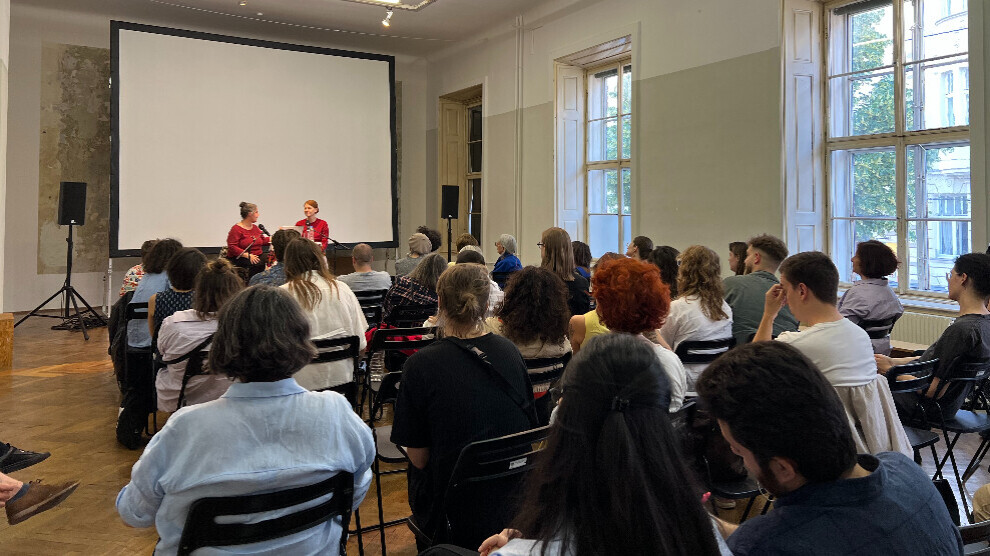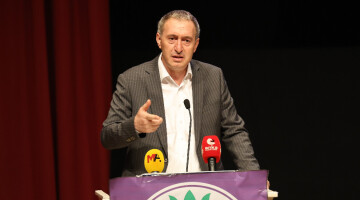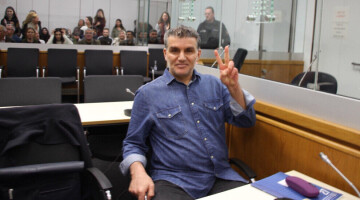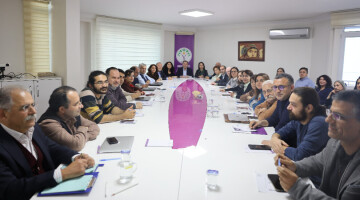On Thursday evening, the Vienna Folklore Museum hosted a seminar on the women’s revolution and the social contract of the Democratic Autonomous Administration of North and East Syria (DAANES). The speakers were Necibe Qeredaxi and Sara Marcha from the Brussels Institute for Jineology, who are visiting Austria as part of this year's Vienna Festival. The event, which will run from 17 May to 23 June, presents 46 productions and artistic projects from the fields of theatre, opera, music, dance, performance, visual arts and activism.
The first speech of the seminar was made by İlham Ehmed, Co-Chair of Foreign Relations of the Democratic Autonomous Administration of North and East Syria. "From North and East Syria, the site of the democratic and ecological women's revolution, we wholeheartedly greet the Free Republic of Vienna. We are full of hope that you will be the ultimate driving force for the spread of a democratic culture and women's freedom."
Najîbe Qeredaxî, who gave a seminar on the social contract of the autonomous administration in northern and eastern Syria, and Sarah Mancha from the Brussels Institute of Jineolojî are also visiting the festival. The planned speakers and workshop organisers Rehan Temo and Remziye Mihemed were denied entry to Austria.
Najîbe Qeredaxî spoke about the etymology of Rojava, the multinational/religious character of the whole region, and the importance of autonomous women's organisations that dismantle conservative structures in the region and promote a change of perspective. "In order to put an end to external attacks, such as targeted killings by Turkish drones, collective action and cross-border solidarity with other oppressed groups is necessary through broader international thematisation and diplomatic pressure," said Najîbe Qeredaxî.
"Kurdish People's Leader Abdullah Öcalan has done enormous groundwork in the Turkish-occupied part of Kurdistan for decades," said Sarah Marcha.
Marcha explained the importance of diplomatic equality by giving the example of two activists from Rojava who could not come to Vienna because Austria refused them entry visas.
On 26 May, a workshop will be organised titled 'Women's Revolution in Rojava - Confederal Women's System in North and East Syria'. Sarah Mancha will attend the workshop. The workshop will introduce the confederal women's structures and achievements, explain the role of Jineology and seek answers to the question "What is the importance of these experiences for international women's struggles and how can we link our struggles?"












